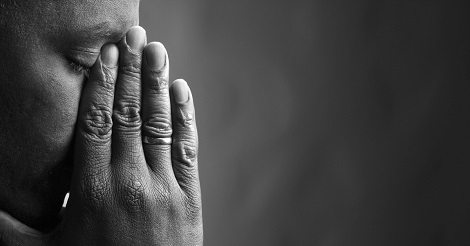CHICAGO, IL – Losing a loved one due to the negligence or wrongful actions of another person is a devastating experience. Beyond the emotional toll, families often face financial hardships, from funeral expenses to the loss of income and support. In Illinois, wrongful death claims offer a way for surviving family members to seek compensation and justice for their loss. However, winning a wrongful death lawsuit requires more than just proving that someone passed away. The legal process is complex, and strong evidence is necessary to establish liability and secure compensation.
If you’re considering filing a wrongful death claim in Chicago, understanding the specific types of evidence required under Illinois law is essential to building a successful case.
Understanding Wrongful Death Claims in Illinois
In Illinois, wrongful death claims are governed by the Illinois Wrongful Death Act. The law allows certain family members — typically a surviving spouse, children or parents — to file a lawsuit against the party responsible for their loved one’s death. A wrongful death claim must demonstrate that the death was caused by a wrongful act, neglect or default that would have allowed the deceased to pursue a personal injury claim had they survived.
It’s important to act quickly. In Illinois, the statute of limitations for filing a wrongful death lawsuit is typically two years from the date of death. However, exceptions exist, such as for cases involving medical malpractice, which may have different deadlines. Working with an experienced wrongful death attorney in Chicago can help ensure that you meet all legal deadlines and gather the necessary evidence to build a strong case.
Essential Evidence in a Wrongful Death Lawsuit
When pursuing a wrongful death claim, gathering evidence is key to proving the four main elements: duty of care, breach of that duty, causation and damages. Each of these elements requires specific types of evidence to establish liability and demonstrate the full impact of the loss.
- Proving Duty of Care and Breach of Duty
The first step in a wrongful death case is to prove that the defendant owed a duty of care to the deceased. This duty varies depending on the circumstances. For example, a doctor owes a duty to provide medical care within the accepted standard of practice, while a driver has a duty to follow traffic laws and drive safely.Once a duty of care is established, you must show that the defendant breached that duty. Evidence in this part of the case often includes expert testimony, eyewitness accounts and official reports.
Medical Records: In cases involving medical malpractice, medical records are critical. They show the treatment your loved one received and can help demonstrate where errors or negligence occurred.
Police Reports: If the wrongful death was the result of a car accident, police reports are essential. They provide detailed accounts of the scene, potential witnesses and citations issued to the responsible party.
Expert Testimony: In complex cases, expert witnesses can provide insights into whether the actions of the defendant fell below the standard of care. For example, in a medical malpractice case, a medical expert can explain how the healthcare provider’s actions deviated from accepted medical practices.
- Causation: Linking the Negligence to the Death
Even if a breach of duty is proven, the plaintiff must also establish that the breach directly caused the death. This can sometimes be the most challenging part of a wrongful death case, particularly when there are multiple potential causes of death.Autopsy Reports: An autopsy report provides detailed information about the cause of death, which can be crucial in linking the defendant’s negligence to the loss of your loved one. This is especially important in medical malpractice or product liability cases.
Witness Statements: Eyewitness accounts of the incident can be invaluable in connecting the defendant’s actions to the fatal outcome. For example, if a person died in a car accident, witnesses may testify that the driver was speeding or driving recklessly.
- Proving Damages
Finally, in order to obtain compensation, you must provide evidence of the financial and emotional damages caused by the death. Illinois allows for compensation for both economic and non-economic damages in wrongful death cases, including loss of companionship, funeral expenses and loss of future income.
Financial Records: To prove the financial impact of your loved one’s death, you may need to present pay stubs, tax returns and other documentation of their income. This evidence helps calculate lost earnings and support.
Testimony from Family Members: Family members can provide testimony about how the death has affected their lives emotionally and financially, which is crucial in securing compensation for non-economic damages, such as loss of companionship and emotional support.
Why You Need a Wrongful Death Attorney in Chicago
Navigating the legal complexities of a wrongful death case requires expertise. Working with a skilled wrongful death attorney in Chicago can make the difference between securing the compensation you deserve and losing your case. Your attorney will help gather evidence, consult with experts and build a compelling argument to prove negligence and the extent of your damages.
In Illinois, wrongful death lawsuits are not only about financial compensation — they are also about holding the responsible parties accountable for their actions. If you have lost a loved one due to someone else’s negligence, consulting with a wrongful death attorney in Chicago can help you understand your legal rights and options.
Contacting a Wrongful Death Lawyer
Filing a wrongful death claim is a challenging process that requires substantial evidence to prove liability and damages. By understanding the types of evidence needed in Illinois wrongful death lawsuits, you can better prepare for the legal journey ahead. If you believe you have a wrongful death case, contact our firm at (312) 384-1920 to work with attorneys to guide you through the process and help you secure the compensation your family deserves. Fill out this form and someone from our firm will reach out with the next steps. Get started today!



